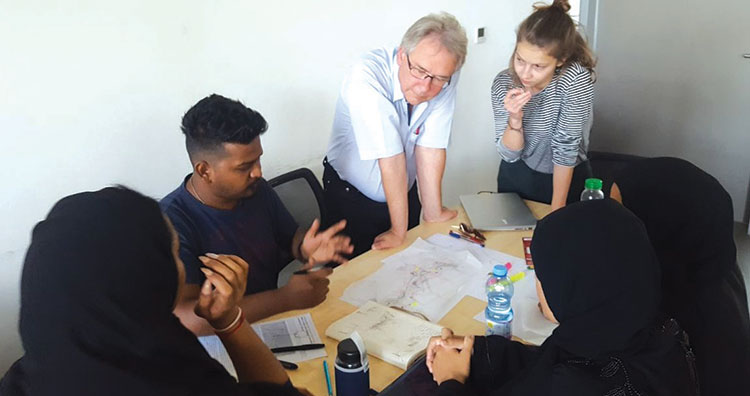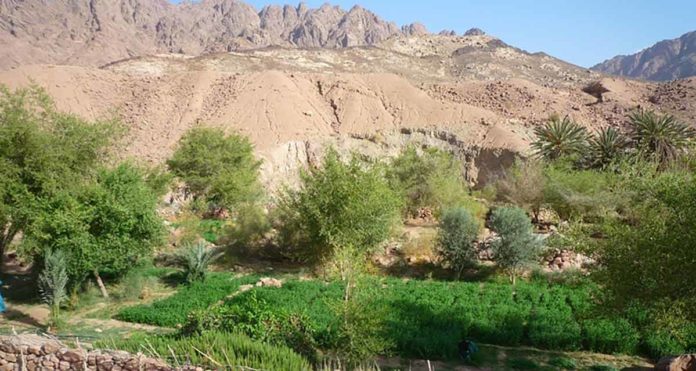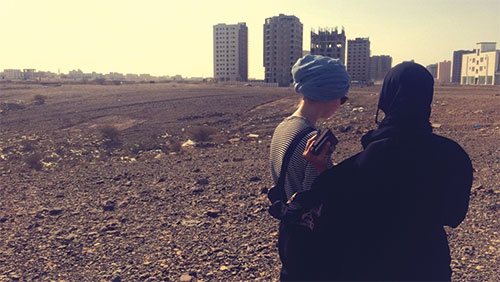Greening Omani Wadi Beds – is an Omani-German student project that seeks to create a ‘green concept’ for the greater Muscat area to connect neighbourhoods through public green spaces within wadi beds.
A group of Urban Planning and Architectural Design students from GUtech have conducted a joint urban planning project with twelve students from the University of Technology in Dortmund (TU Dortmund) in Germany, Department of Spatial Planning. During the two week project, the students developed a water sensitive urban design and a sustainable water management system in the capital, Muscat.
“Our main research question was how to integrate wadis as green public spaces into the urban structure of Muscat considering a sustainable water management and a flood protection concept,” said Prof. Dr Wolfgang Scholz, the project supervisor of Greening Omani Wadi Beds. He is the Fly-in professor at GUtech and a Professor at the University of Technology in Dortmund (Germany).

“Our aims were to create a ‘Green Concept’ for the Greater Muscat Area in order to overcome the separation of neighbourhoods and to connect these neighbourhoods with each other through public green spaces within wadi beds while making use of huge undeveloped urban areas. In addition, as a strategic approach, the so-called wadi parks could replace the neighbourhood parks and create more building land in future. Moreover, a sustainable water management and flood protection system could be integrated along with flood protection measures.”
As part of the study project, the group of Omani and German students conducted various field visits to Wadi Al Khoud and Wadi Al Khuwair. They presented a total of 12 urban planning proposals for creating public parks while respecting the flood protection and low-level interventions as well as the danger of destruction after a sudden flash flood during the winter months.
A total of five interviews were conducted by the students, including those with the experts from the Botanical Garden, the Directorate of Gardens at the Ministry of Housing, the Ministry of Environment and Water Resources and Haya Water. In addition, the students conducted a questionnaire survey with inhabitants of Al Khoud and Al Khuwair and a total of 300 interviews with the local community in both areas.
The results of the survey were presented during a two-day workshop at GUtech, recently. The results included shaded sitting areas and playgrounds at the fringes of the wadi and in protected areas as well as low-cost interventions in the wadi bed itself that serve as sports fields, jogging lanes and walkways. The aim was to keep the wadi as natural as possible while protecting its functional and aesthetic aspects. The results are open to the public and interested researchers.
(For more details, contact: Wolfgang.scholz@gutech.edu.om)
© GUtech/ Text: Dr. Manuela Gutberlet and Prof. Dr. Wolfgang Scholz; Photos: GUtech/ UPAD Department


